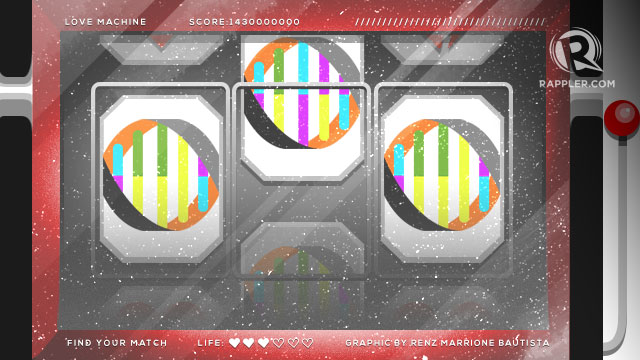SUMMARY
This is AI generated summarization, which may have errors. For context, always refer to the full article.
 Who or what draws two individuals to marry each other?
Who or what draws two individuals to marry each other?
Set aside the usual hormonal sponsors of “love and attraction” and the seductively laced promises of woe-less wooing for an imagined eternity, what else do you think draws two people to agree to have a distinct identity in society as a formal married couple?
Arguably, one of the most important decisions you ever have to make in your life is who to marry. We, of course, know of cultures and personal stories where that decision is made by someone else other than the would-be couple.
But what if this crucial decision was, in good part, also made by something you are not aware of when you decided to formally start the rest of your life with your chosen partner?
That something, according to a recent study published in the Proceedings of the National Academy of Sciences in the US, is your most intimate part. Intimate, yet, you don’t really consult it when it comes to a decision like marriage. That invisible matchmaker turns out to be your own genes.
The PNAS study revealed that married couples are more genetically similar than randomly paired ones.
The study made use of individuals from a given population in the US who were part of the Health and Retirement Study. This is the first time that a study focused on comparing the entire genomes of married couples to see how similar they are compared to just any two people.

To measure genetic similarity, the scientists compared the “snips” of married individuals with randomly paired individuals.
“Snips” are short for “single nucleotide polymorphisms” or the differences in the sequencing of DNA bases (adenine, thymine, cystosine and guanine or A-T-C-G) between between individuals.
There are about 3 billion base pairs in each of our genome. This study compared 1.7 million “snips.” The differences indicate the extent of gene similarity between individuals.
Though the study was limited to white heterosexual Americans who were born between 1920 and 1970, it opened the question as to the extent it is true with other populations. It would be fascinating to test this in other populations, different cultures, and generations born after 1970.
The study certainly got me thinking as to how much our “nature,” in the form of our genes, influences our marriage choices so that we end up with partners who are genetically similar to us without even knowing it.
For people like me who habitually delude themselves that they are in no way controlled to any significant extent by what their parents say, unless they consciously agree with their parent’s opinions, this is a humbling lesson.
This means that whether or not our parents say anything that affect our marriage decisions, how we choose is partly written and influenced by what they gave us in the form of our genes.
Educational attainment and genes
But wait there’s more! The study got even more interesting when they compared the educational attainment of individuals who were married. The study found that married couples were far more similar in educational attainment than they were genetically.
Whoa, now we’re talking. At first, it seemed to me that there is a more conscious decision on our part when it comes to choosing marriage partners since educational attainment is something that is knowable. Right? Well, not purely.
The scientists also cited many studies that link educational attainment with genes. Thus, we cannot exactly say that when we chose him or her because we share the same level of education, that that is a choice, independent of nature’s givens in the form of our genes, written in practically each and every cell in our bodies.
Nature also seems to have a say, though not the only say, in the lengths we reach in formal education.
While reading the study, I also remembered an experiment which hogged headlines and science shows a couple of years back. That experiment revealed that we are attracted to the odor of someone whose major histocompatibility index (a genetic marker present in most vertebrates and plays a role in our immune system) is different from ours. The recent study in PNAS mentioned that many studies have confirmed that finding.
This then leads us to ask, how then do we generally end up married to individuals with whom we are genetically similar? This is still a mystery and it would be very interesting to see why there seems to be a different genetic phenomenon going on with attraction and another when it comes to marriage.
While our mature emotional selves could probably tell the difference, science has yet to unmask the similarities and differences between the genetic dramas that apply to our “patners” in our “attracted” and “married” lives.
So the next time you want to recognize (either negatively or positively) the matchmaker who helped you find your spouse, thank or blame your own genes as well.
Those genes certainly had a lot longer time “whispering” to you about your choice than any other matchmaker had out there. – Rappler.com
Maria Isabel Garcia is a science writer. She has written two books, Science Solitaire and Twenty One Grams of Spirit and Seven Ounces of Desire. Her column appears every Friday and you can reach her at sciencesolitaire@gmail.com.
Add a comment
How does this make you feel?
There are no comments yet. Add your comment to start the conversation.